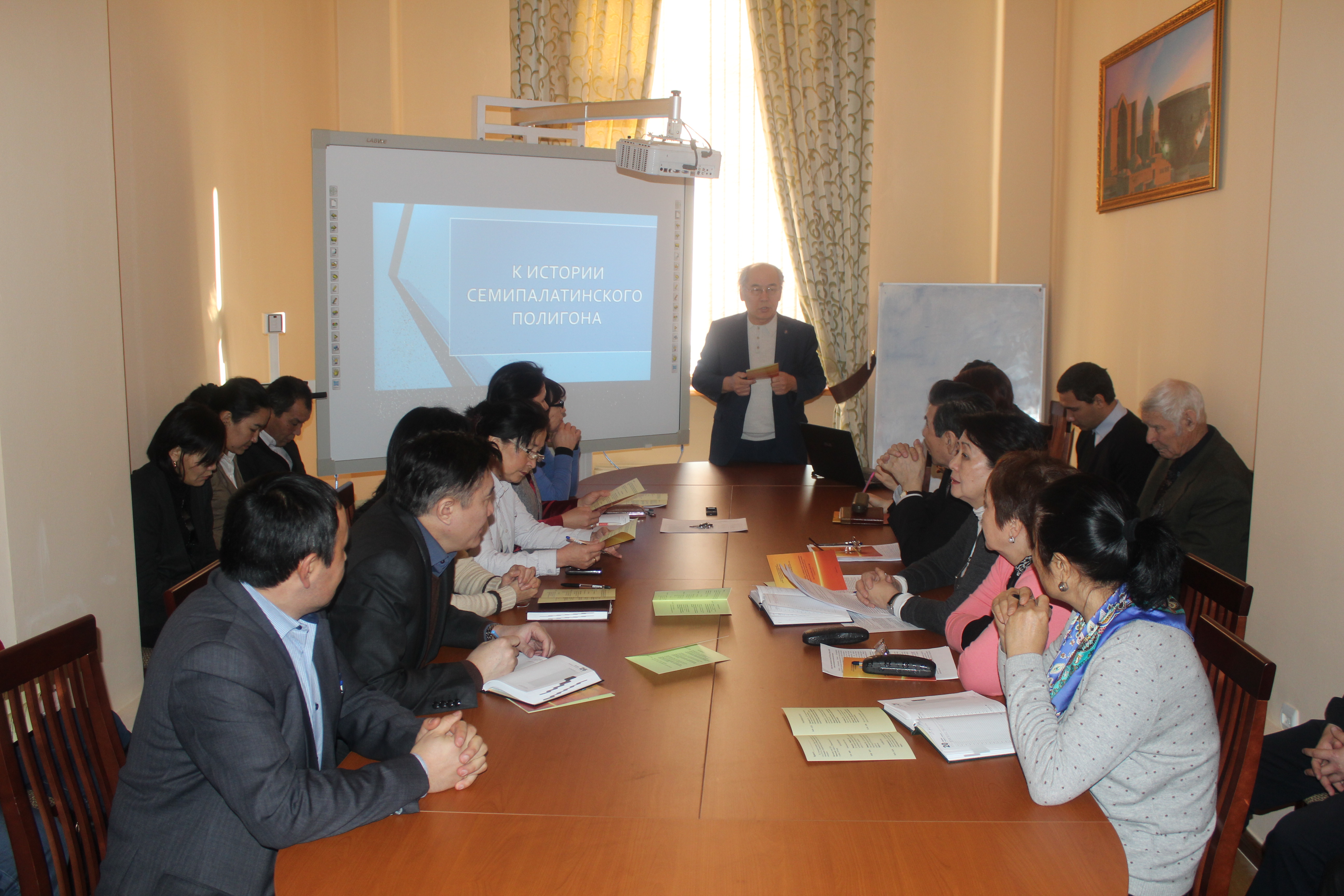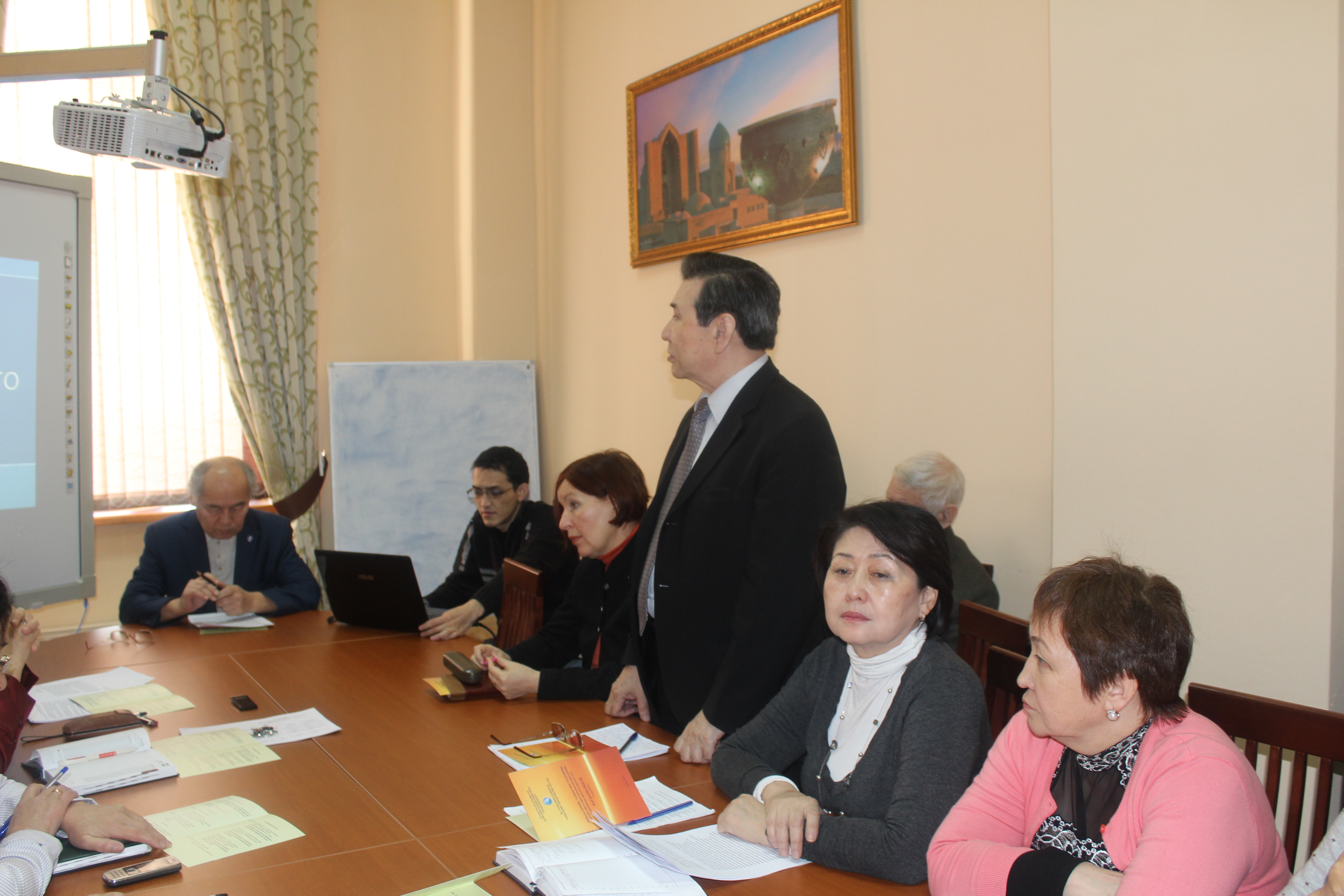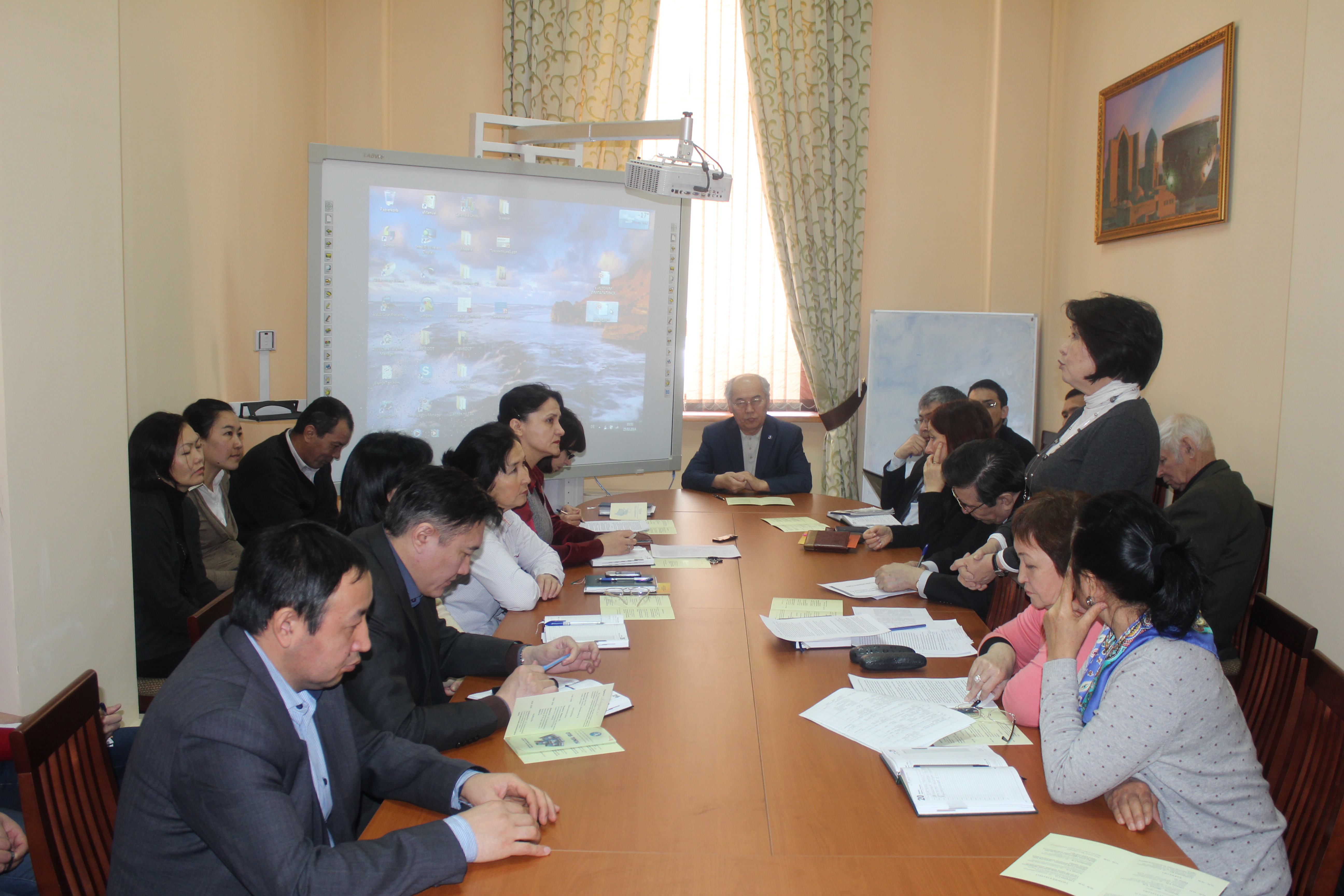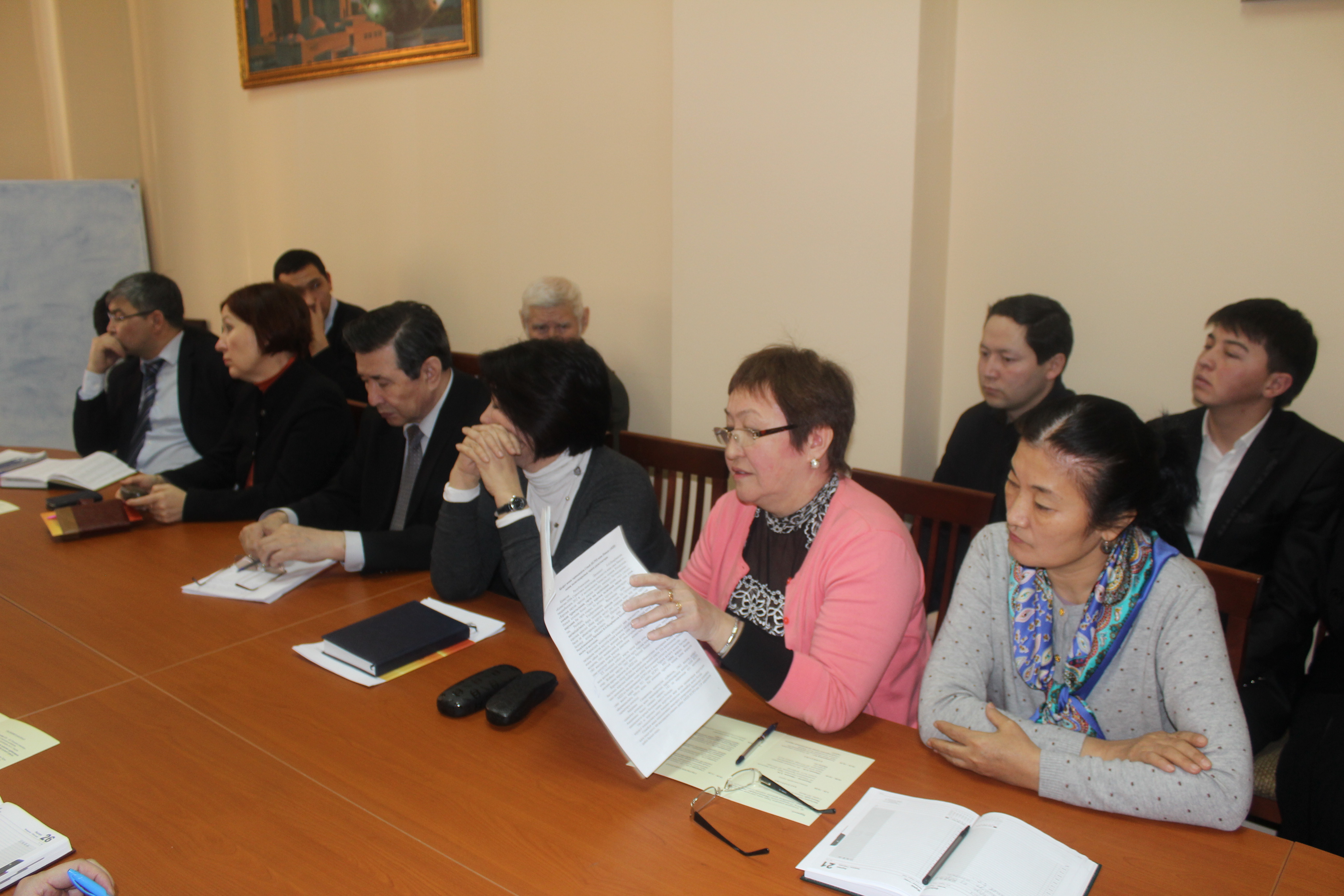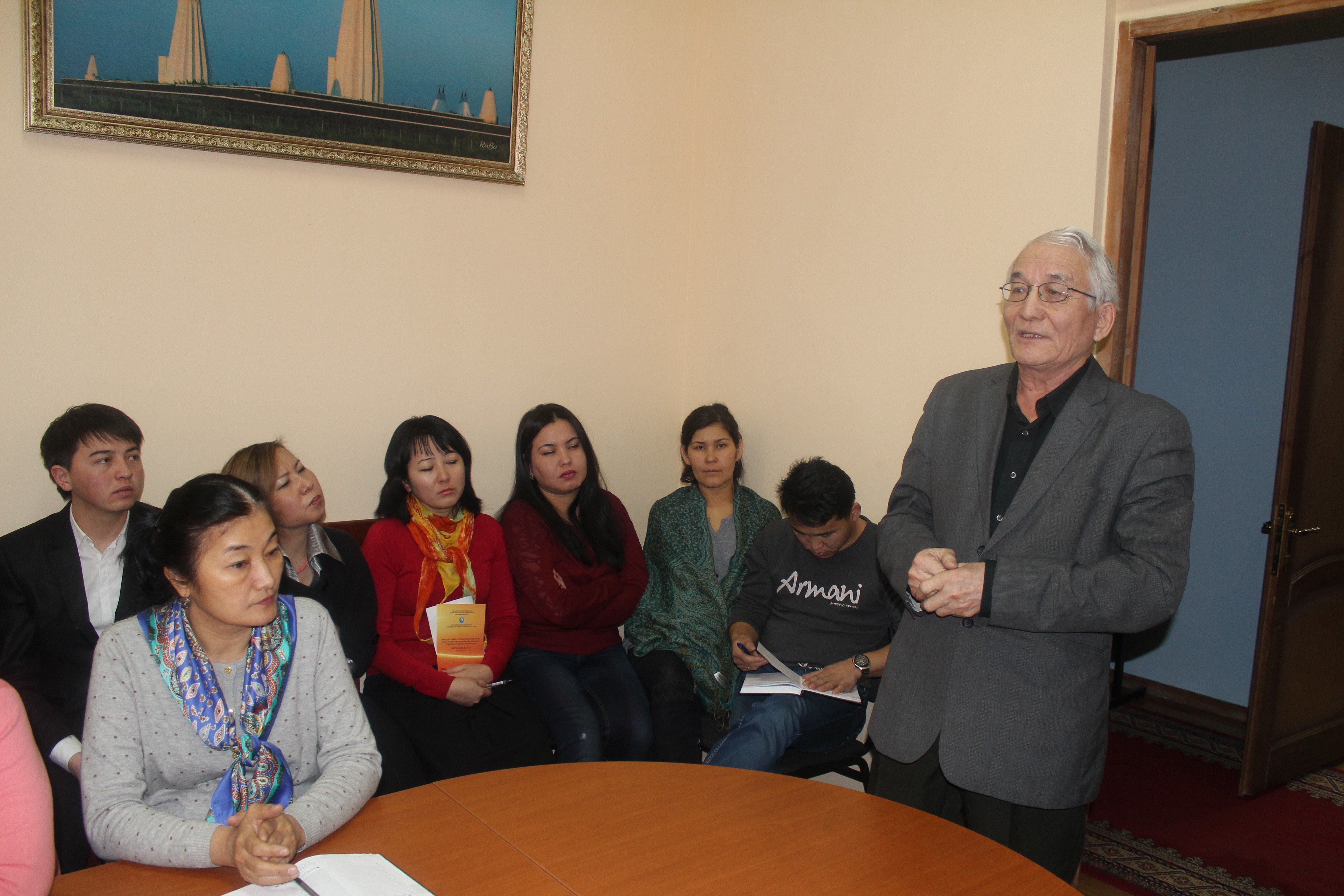A
Roundtable meeting on "Nevada-Semipalatinsk: history and lessons"
(devoted to the 25th anniversary of the anti-nuclear movement
"Nevada-Semipalatinsk) was held today at the Institute of History and
Ethnology named after C. Valikhanov.
The introductory speech was delivered by the director of the Institute, a member of NAS of the Republic of Kazakhstan, Professor J.M. Abzhanov. In his speech, he noted that the consequences of using the landfill remained in the social and economic situation of the region. This year marks the 25th anniversary of the closure of the landfill. August 29 is celebrated as the International Day against Nuclear Tests. This is the result of deliberate policy of our President. Nuclear tests that were conducted in the period from 1949 to 1989 and affected the public health and the environment are discontinued.
Senior Researcher of the Institute, Ph.D. K.S. Aldazhumanov in his report told the audience about the history of the nuclear test site. Achievements of nuclear physics in the period 1930-1940 led to the creation of the atomic bomb. The development of the atomic bomb is closely linked with the United States and other countries, their policies that led to the nuclear tests at the Semipalatinsk test site in the period 1949-1989. During the 40 years period of nuclear testing, the interests of the Kazakh people were not considered. The consequences of nuclear explosions were an ordeal for the Kazakh people. The rapporteur stressed that research was hindered by the lack of documentary sources about the explosions at the Semipalatinsk test site.
Deputy Director of the Institute, PhD, associate professor S.O. Smagulova in her scientific report addressed the issues of social protection of the population in areas affected by nuclear explosions at the Semipalatinsk test site. The speaker noted that social assistance should not be limited to the payment of compensation. In addition, you must also provide free medical care. Relevant law, which was adopted in 1992, should always be implemented in practice.
Senior Researcher of the Institute, Ph.D. S.A. Assanova focused in her speech on the history of the movement "Nevada-Semipalatinsk", noted the need for a close relationship between the government and the people. She identified the historical significance and place of "Nevada-Semipalatinsk" in Kazakhstan's recent history.
Senior Researcher of the Institute, PhD, Associate Professor G.J. Uskembaeva noted in her speech that the Semipalatinsk test site and test site in Nevada (USA) have a similar history. She provided a comparative analysis of the effects of nuclear testing on human and ecology of the regions. She also drew attention to the particular effects of nuclear testing in Nevada (since 1951) and the Semipalatinsk test site (since 1949).
Summing up the results of the round table, the management of the Institute requested the union to consider the provision of social benefits for the members of the Institute, who have a certificate confirming the right for benefits as a result of tests at the Semipalatinsk nuclear test site.